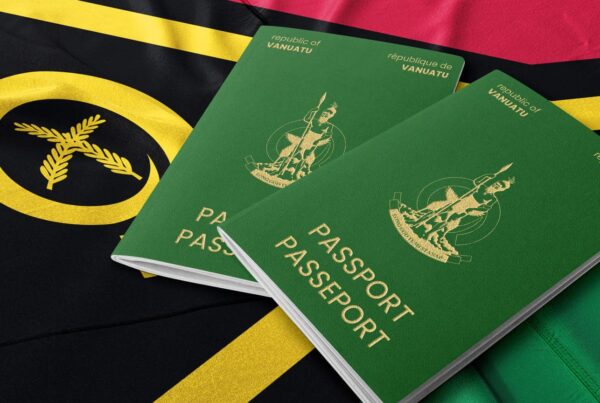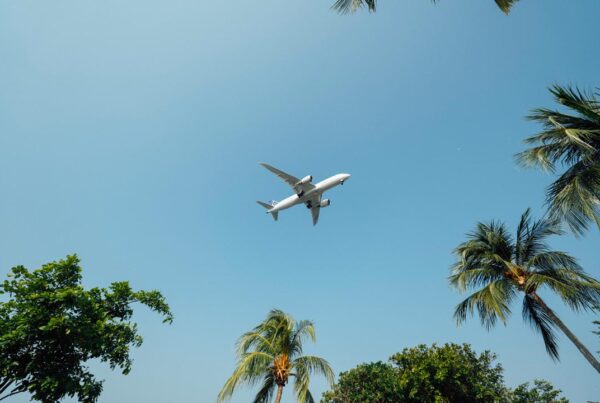By Martin St-Hilaire (Vanuatu) and Philippe May (Singapore)
Read the original publication here
By now it should be clear to everyone that EU bureaucrats are not Vanuatu’s allies on its path toward prosperity and self-sufficiency. Whether or not the Pacific island nation accedes to their ever-increasing demands, they continue to blame it for imaginary crimes and saddle it with bureaucratic hurdles. Perhaps it’s time Vanuatu gave up on the EU, found some new friends, and refocused its energies on further developing its own strengths.
The latest charge in Brussels’ assault on Vanuatu’s sovereignty is the suspension of visa-free travel in the Schengen Area for all passports issued after 2015. This was clearly meted out as punishment for the alleged shortcomings of the country’s Citizenship by Investment (CBI) offering. The European Council recently gave its government 18 months to make reforms, otherwise the suspension will be rendered permanent for all Vanuatu citizens.
Just seven years after lifting the visa requirements to “step up economic and cultural relations and intensify political dialogue,” the justification given at the time, bureaucrats in Brussels want to tar all 300,000 Ni-Vanuatu with the same brush of suspicion, just because its 10,500 CIB holders may have been inadequately vetted. So much for collegial “relations” and “dialogue”: the priority now is to apprehend dangerous criminals hiding behind a Vanuatu passport – even though not a single one has yet emerged.
An outrageous accusation
To take a broader perspective, currently 1.7 billion people from close to 60 countries enjoy visa-free access to the Schengen Area, not to mention the 450 million citizens of its 27 member nations. But apparently the next money launderer or terrorist bomber is very likely a Vanuatu CBI recipient, just because some civil worker didn’t properly check their ID. How ludicrous is that?
Nevertheless, the government in Port Vila has agreed to make changes in the hope of seeing the decision reversed. EU officials have offered their collaboration, and technical meetings have been scheduled; but they have also made no secret of their loathing of the very concept of CBI. As noted in these pages earlier, European Home Affairs Commissioner Johansson, who met with Vanuatu PM Kalsakau in December over the issue, has publicly backed the European Parliament’s adoption of a 2022 report on investment migration which explicitly seeks to end all CBI programs across the world.
So don’t get too excited by their offer of collaboration! The reformed CBI that will come out of it will probably be a shadow of its former self, bloated with compliance requirements, barely functional, and of little value to potential applicants, who will seek a more attractive CBI elsewhere.
Shackling Vanuatu’s economy
How could it be otherwise? Let’s not forget that since 2018, the EU has been smearing Vanuatu’s reputation and diminishing its economic prospects through baseless accusations of money laundering and terrorism financing. They’ve maintained the country on sinister blacklists beside the likes of Afghanistan, Syria and North Korea, even though the accepted global arbiters in these questions, the Financial Action Task Force and the OECD, have long ago confirmed its compliance.
Successive governments in Port Vila have sought ways to get off those blacklists, but all they ever get from Brussels are vague, often condescending answers, if not total silence. And for seven years now, the country’s businesses have been unfairly hamstrung when competing in global markets, with overseas customers and investors scared off by aspersions on the good name of Vanuatu, which stem directly from the overreach of the EU.
We can only offer conjecture to explain this attitude. Perhaps the bureaucrats in Brussels don’t trust Ni-Vanuatu with any kind of large-scale or advanced business, and they would prefer if they stuck to what they do now, namely small-scale agriculture and boutique tourism, so they don’t nip into anyone else’s market share. Or maybe they find them more submissive if they depend on foreign aid than if they create their own revenue streams. Or maybe they’re allergic to free trade outside their purview?
In any case, they certainly delight in telling small Pacific nations what’s good for them! But if the blacklist saga taught us anything, it’s that Vanuatu should not hope for constructive European help when it comes to growing its economy. So it’s time to look elsewhere.
Make do without the EU
Instead of watering down their CBI program in the distant hope of seeing their Schengen visa waiver restored –which may never happen– Vanuatu leaders should think of ways to market it differently.
The passport does retain substantial value. There are many destinations where Vanuatu citizens still enjoy visa-free access, such as the U.K., Hong Kong, Singapore, Israel, and Russia. And many people look for second citizenship not just for travel but for many other reasons: to secure a plan B for their family’s future; to move assets out of reach of a surveillance state; to take advantage of business-friendly regulations; or simply to diversify their investment portfolios.
Currently, the majority of Vanuatu CBI recipients are in fact of Chinese origin; they are upper-middle-class and upper-class individuals who fear the excesses of their authoritarian government, and their second citizenship is an insurance policy for themselves and their families. Should they come under the crosshairs of the CCP for whatever tyrannical reason, they can easily jump boat and go to a Southeast Asian country with a sizable Chinese community, using their Vanuatu passport to enter visa-free or easily get an eVisa or visa on arrival. In this scenario our CBI program plays a humanitarian role while raising funds for a financially strapped country that wants to develop using its own sovereign means.
Adjusting the numbers
The Ministry of Finance reported a drop in the number of CBI applicants and resulting income (-34% year-on-year for Q2 2022), and this is likely due to outdated pricing.
Until now the investment requirement was $130,000, in the same ballpark as similar CBI offerings in Antigua and Barbuda, Saint Kitts and Nevis, or Saint Lucia. But these still grant visa-free access to the Schengen Area, while Vanuatu no longer does. To stay competitive, it should lower the required investment to between $75,000 and $95,000, which would make its offer attractive to a broader market. A quota could then be established, of about 3000 recipients per year, to maintain value through relative scarcity.
In this example Vanuatu would generate about $250M of free cash flow every year into its public coffers – all self-earned, with no strings attached. This means more funding for education, health and infrastructure; and since most of the new citizens won’t be moving there, they won’t add much of a burden to those services.
Simply repositioning the CBI program makes the problem of the Schengen visa waiver disappear. People who are bent on visiting the Schengen Area for 90 days at a time without a visa can pay the premium for another country’s CBI. Everyone else can enjoy the many other benefits of the Vanuatu CBI for a lower price.
Exemptions go both ways
If Vanuatu’s government is really serious about getting its Schengen visa waiver back –without compromising its CBI– there is a straightforward way to do it. They can simply start requiring visas from all European visitors. There are many more of them coming to our shores than the other way around, so the administrative burden would be heavier for the EU than it is for Vanuatu – not to mention the public outcry.
Perhaps that wouldn’t be enough to convince the bureaucrats in Brussels to drop their demands. Their self-admitted hatred of CBI programs runs so deep that they might be ready to suffer any public backlash. But at least it would remind them that Vanuatu is a sovereign state, which they so often seem to forget, and that there are consequences to trying to bully sovereign states into administrative submission.




